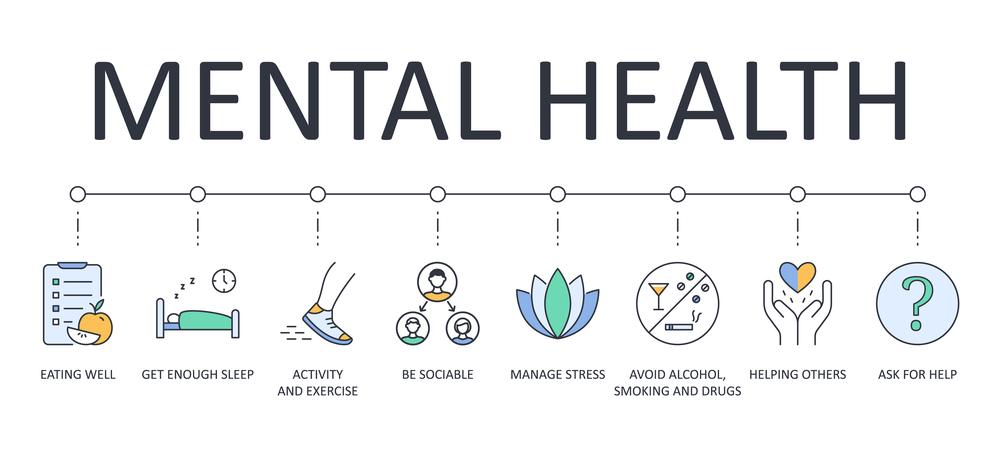As a BetterHelp affiliate, we receive compensation from BetterHelp if you purchase products or services through the links provided
Chronic back pain is often seen as a physical ailment, a straightforward symptom of strain or injury. However, it is far less recognized as a psychological catalyst, significantly amplifying stress levels and impacting mental health. In this blog, we delve into the complex interplay between back pain and stress, exploring how these conditions fuel each other in a vicious cycle that affects millions worldwide. Understanding this connection is crucial for developing holistic healing strategies that address not just the physical symptoms but also the emotional turmoil that accompanies chronic pain.
Physical Manifestations
The intertwined nature of back pain and stress often manifests physically in a variety of ways. Individuals suffering from chronic back pain may experience heightened muscle tension, particularly in the back, neck, and shoulders, which can exacerbate their existing condition.
This muscle tension further restricts movement, decreasing physical activity and, consequently, reducing endorphin levels—the body’s natural pain relievers. The team behind https://healthreportlive.com/back-pain/mid-back-stretches/ says that doing stretch exercises can be beneficial in reducing back pain and stress, as it helps to relieve muscle tension and promote blood flow, thereby boosting endorphin levels.
Sleep Disruptions
Sleep disturbances are a common consequence of chronic back pain, with the discomfort often making it difficult to find a restful position, leading to interrupted sleep and a lower overall quality of rest. This lack of sleep contributes to a rise in stress hormones, such as cortisol, compounding feelings of stress and creating a less resilient mindset for dealing with pain. A vicious cycle emerges where pain leads to sleep loss, which in turn leads to heightened stress and further exacerbates the back pain. Establishing good sleep hygiene and creating an environment conducive to rest can break this cycle.
Impact on Daily Activities
Chronic back pain’s infiltration into daily life can be both subtle and overt, impacting the ability to perform even mundane tasks with ease. This disruption in daily routine can lead to a diminished sense of self-efficacy, spiraling into further emotional distress. Sitting, standing, or bending that is often taken for granted becomes a challenge, casting a shadow over productivity and the enjoyment of leisure activities. It’s a ripple effect that touches every aspect of life, from professional responsibilities to social engagements and requires adaptive strategies to maintain a semblance of normalcy.
Mental Health Struggles

The psychological repercussions of enduring chronic back pain cannot be overstated, with anxiety and depression frequently accompanying this physical discomfort. The relentless nature of pain can lead to feelings of helplessness and hopelessness, often characterizing the landscape of mental health struggles faced by those affected.
The limitation of activities that once brought joy can contribute to a loss of identity and isolation. Furthermore, the stress from constant pain can impair cognitive functions such as concentration and memory, adding to the frustration and emotional burden. It is essential to acknowledge these mental health challenges as integral components of the condition, ensuring that therapeutic interventions encompass both body and mind.
Social and Relationship Dynamics
The reach of chronic back pain extends into the social and relational realms, often influencing interactions with family, friends, and colleagues. This ongoing discomfort can lead to social withdrawal as individuals may find it challenging to partake in social gatherings or maintain an active social life.
The unpredictability of pain flare-ups fosters a reluctance to make commitments, further isolating those affected. In familial and intimate relationships, the roles and dynamics may shift, sometimes causing strain as partners or family members adapt to the caregiving role or shoulder additional responsibilities. Open communication and seeking support through therapy or support groups can be instrumental in mitigating the impact of chronic back pain on personal relationships and social connectivity.
Workplace Stress

The workplace is often a significant source of stress, and for individuals grappling with chronic back pain, it can be particularly grueling. Painful conditions may impair the ability to concentrate, reduce productivity, and increase the possibility of absenteeism or presenteeism, wherein an employee is physically at work but not fully functioning due to their condition.
The psychological stress of meeting professional responsibilities while managing pain can compound the problem, potentially leading to a decline in work performance and job satisfaction. Additionally, the fear of being perceived as less capable by colleagues or superiors can create an emotional burden, exacerbating the stress-pain cycle. Employers and employees must work together to create ergonomic work environments and offer flexible work arrangements to accommodate those with chronic pain, promoting a healthier and more inclusive workplace.
In conclusion, chronic back pain’s ripple effect on stress levels permeates every aspect of life, from physical discomfort to psychological distress and strained relationships. However, by recognizing this connection and implementing comprehensive healing strategies that address both physical and mental well-being, individuals can break free from the cycle of stress and back pain, regaining a sense of agency over their lives.
This site contains affiliate links to products. We will receive a commission for purchases made through these links.



